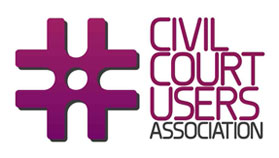Debt Recovery Blog
Charging Orders
- Principal Solicitor
- September 21, 2021
What is a Charging Order?
A Charging Order is an order of the court placing a ‘charge’ on a Debtor’s property, such as a house or a piece of land. The charge will be the amount you are owed plus any accrued interest and costs that may also be due.
A Charging Order may not normally get you your money immediately, but it may safeguard your money for the future.
What happens next?
Obtaining a charge on a property means that when the property is sold, the charge usually has to be paid first before any of the proceeds of the sale can be given to the Debtor. It is important to note that a charging order does not force the Debtor to sell their property. If the Debtor’s property already has prior charges on the property when your charge is registered, for example a mortgage, then those charges will be paid first.
Obtaining a Charging Order is a two stage process:
- The first step is to make an application using Form N379. This step is where the Court will grant an Interim Charging Order.
- The second step is where the Interim Charging Order is made “Final” at a hearing.
Following an Interim Charging Order being made Final, you may have a third stage where you may apply to the Court for an Order for Sale of the Debtor’s property. This is an expensive phase and is dependent on several key factors including: the size of the judgment debt owed to you, the amount of equity in the property and the number of other prior charges on the property.
Why choose CSB Solicitors?
The expert team of Solicitors at CSB Solicitors can provide you with accurate advice and are highly cost effective. Contact CSB Solicitors immediately for a consultation to discuss your charging order needs.
We are the experts here to help you!
Further Blog & Legislation Categories
The contents of our blogs is to be treated as general guidance only. Please do not take any action based on the content of our blogs unless you have specifically instructed us to provide you with legal advice. CSB Solicitors do not accept responsibility for any errors or inaccuracies, loss, or damage in circumstances where there is no formal retainer between us and where we have not given you specific advice relating to a matter and where you have given us full details of the same.
The contents of our blogs are based on English Law, and because they contain historical material, that information may be out of date. For that reason, please consider the date that the blog was posted and remember that the laws may differ in different legal jurisdictions.










